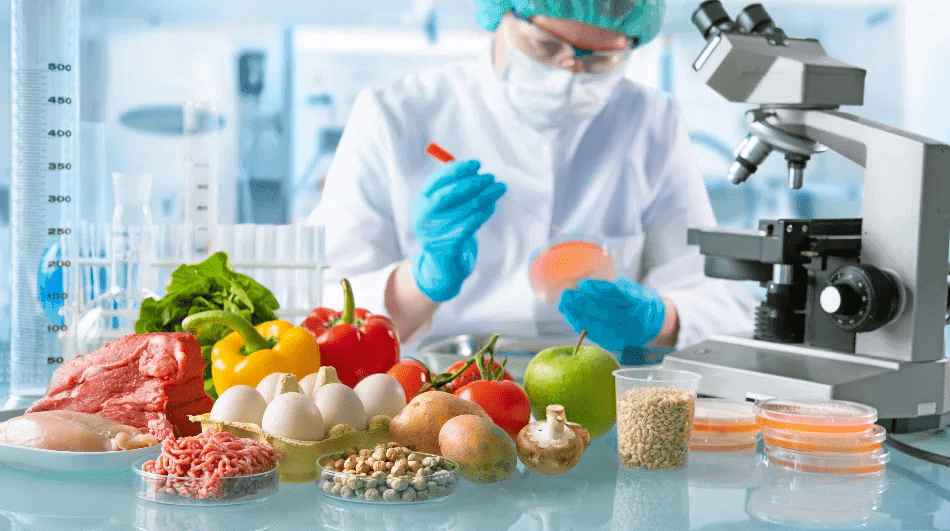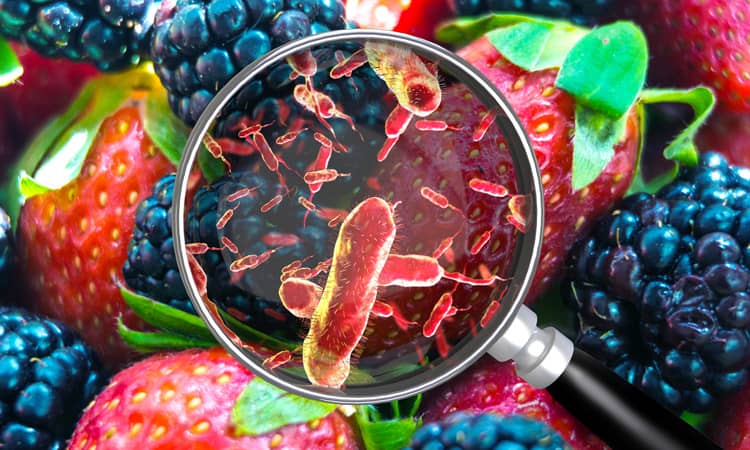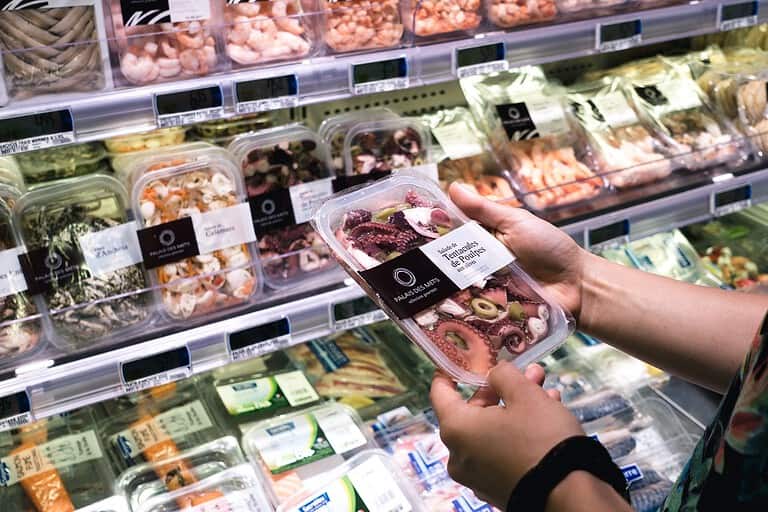Why Food Products Must Meet Regulatory Standards? What You Need To Know As A Consumer
As consumers, we expect the food we purchase to be safe and meet regulatory standards. But what exactly are these standards, and how are they enforced? In this article, we will explore the world of food regulation and the measures in place to ensure the food we eat is safe and of high quality.
Food regulation is a complex system that involves multiple government agencies, industry groups, and scientific experts. The primary goal of food regulation is to protect public health by ensuring that food products are safe, wholesome, and accurately labeled. This includes everything from setting standards for food additives and preservatives to regulating the use of pesticides and other chemicals in food production.
At the heart of food regulation are the standards of identity (SOI), which establish a common name and set of content requirements for a food product. These standards help ensure that consumers are not misled by false or misleading labeling claims. For example, if a product is labeled as “chocolate ice cream,” it must meet specific requirements for cocoa solids, milk fat, and other ingredients to be considered a true chocolate ice cream.
International Regulations
When it comes to food products, meeting regulatory standards is essential to ensure consumer safety and protect public health. As a global community, we recognize the importance of international regulations to establish common standards and guidelines for food safety and quality.
One of the most prominent international organizations in this field is the Codex Alimentarius Commission, which was established by the Food and Agriculture Organization (FAO) and the World Health Organization (WHO) in 1963. The Commission develops international food standards, guidelines, and codes of practice to protect the health of consumers and ensure fair practices in the food trade. Currently, the Codex Alimentarius Commission comprises 188 member countries, one member organization (the European Union), and more than 230 observers, including intergovernmental organizations, non-governmental organizations, and United Nations agencies.
In addition to the Codex Alimentarius Commission, other international organizations play a crucial role in regulating food products. For instance, the International Organization for Standardization (ISO) develops and publishes international standards to help food producers meet legal and regulatory requirements. ISO has several technical committees dedicated to food products, food safety, microbiology, and related sectors.
Furthermore, international regulations also include bilateral and multilateral agreements between countries. For example, the United States has signed several agreements with other countries to facilitate trade in food products while ensuring their safety and quality. These agreements include the U.S.-Mexico-Canada Agreement (USMCA), the U.S.-Japan Trade Agreement, and the U.S.-China Phase One Trade Agreement, among others.
Overall, international regulations are crucial to ensuring the safety and quality of food products. As a global community, we must continue to work together to establish common standards and guidelines that protect public health and facilitate fair trade practices.
National Regulations
When it comes to food products, we need to ensure that they meet regulatory standards. These standards are set by national regulations that are in place to protect public health and safety. Compliance with these regulations is mandatory for all food producers and distributors.
Compliance Requirements
Compliance requirements are the rules and regulations that food producers and distributors must follow to ensure that their products meet the national standards. These requirements include labeling, packaging, and storage requirements, as well as compliance with food safety regulations.
For example, food products must be labeled with the correct ingredients, nutritional information, and allergen warnings. They must also be packaged in a way that prevents contamination and spoilage. Proper storage is also important to ensure that the products remain safe and fresh for consumption.
Food Safety Modernization Act (FSMA)
The Food Safety Modernization Act (FSMA) is a set of regulations that was signed into law in 2011. The FSMA is designed to ensure the safety of the U.S. food supply by shifting the focus from responding to foodborne illness to preventing it.
The FSMA requires food producers and distributors to have a written food safety plan that identifies potential hazards and outlines steps to prevent them. It also requires them to have procedures in place to monitor the effectiveness of their preventive controls.
Overall, compliance with national regulations is essential to ensure the safety of our food supply. By following these regulations, we can ensure that the food products we consume are safe, wholesome, and of high quality.
State and Local Regulations
When it comes to food safety regulations, it’s important to remember that they can vary depending on the state and local level. In the United States, each state has its own set of regulations for food service and retail establishments. These regulations are enforced by the state’s health department or department of agriculture, and they cover everything from food handling and storage to employee hygiene and training.
Local regulations can also come into play, especially in larger cities where there may be additional requirements beyond state-level regulations. For example, some cities require restaurants to post letter grades based on their health inspections, while others have specific requirements for food trucks and other mobile food vendors.
It’s important for food service and retail establishments to be aware of these regulations and to stay up-to-date on any changes that may occur. Failure to comply with state and local regulations can result in fines, closure of the establishment, or even legal action.
One way to stay on top of these regulations is to work with a food safety consultant who can help ensure that your establishment is in compliance with all applicable regulations. Additionally, many states offer training and certification programs for food service employees, which can help ensure that they are aware of the latest food safety regulations and best practices.
Overall, it’s important to remember that state and local regulations play a critical role in ensuring the safety of our food supply. By staying aware of these regulations and taking steps to comply with them, we can help ensure that our food is safe and healthy to eat.
Regulatory Agencies
When it comes to food products, there are several regulatory agencies in the United States that ensure their safety and quality. In this section, we will discuss some of the most important regulatory agencies in the food industry.
Food and Drug Administration (FDA)
The Food and Drug Administration (FDA) is responsible for ensuring that all food products, except for meat, poultry, and certain egg products, are safe, wholesome, and properly labeled. The FDA sets and enforces standards for food safety, quality, and labeling, and it also regulates food additives and packaging materials. The agency also inspects food facilities to ensure that they are following good manufacturing practices and complying with food safety regulations.
United States Department of Agriculture (USDA)
The United States Department of Agriculture (USDA) is responsible for ensuring the safety and quality of meat, poultry, and egg products. The USDA sets and enforces standards for food safety, quality, and labeling, and it also regulates the use of antibiotics and hormones in animal products. The agency inspects meat and poultry processing plants to ensure that they are following good manufacturing practices and complying with food safety regulations.
Environmental Protection Agency (EPA)
The Environmental Protection Agency (EPA) is responsible for regulating pesticides and other chemicals used in food production. The agency sets and enforces standards for pesticide residues in food, and it also regulates the use of genetically modified organisms (GMOs) in food production.
Centers for Disease Control and Prevention (CDC)
The Centers for Disease Control and Prevention (CDC) is responsible for investigating and controlling outbreaks of foodborne illness. The agency works with state and local health departments to identify and track outbreaks, and it also provides guidance on how to prevent foodborne illness.
Overall, these regulatory agencies play a critical role in ensuring the safety and quality of our food supply. By setting and enforcing standards for food safety, quality, and labeling, and by regulating the use of additives, pesticides, and other chemicals in food production, these agencies help to protect public health and ensure that consumers can trust the food products they buy.
Codex Alimentarius
When it comes to food safety and quality, there are a lot of regulations that need to be followed. One of the most important is the Codex Alimentarius, which is a collection of standards, guidelines, and codes of practice that have been adopted by the Codex Alimentarius Commission. This commission is made up of 188 member countries, including ours, and was established by the Food and Agriculture Organization (FAO) and the World Health Organization (WHO) to protect consumer health and promote fair practices in food trade.
At its core, the Codex Alimentarius is designed to ensure that food producers and traders comply with specific standards, so that consumers can trust the safety and quality of the products they buy. These standards cover everything from food labeling to food additives, and are regularly reviewed by the Food and Drug Administration (FDA) to ensure that they are up-to-date and in line with current scientific knowledge.
One of the key benefits of the Codex Alimentarius is that it helps to ensure that food products are safe for consumption, no matter where they are produced or sold. This is particularly important in today’s globalized food market, where food products are often shipped across borders and sold in different countries. By adhering to the Codex Alimentarius, we can ensure that our food products meet the same high standards as those produced in other countries.
Of course, complying with the Codex Alimentarius can be a challenge, particularly for smaller food producers and traders who may not have the resources to keep up with changing regulations. However, there are a number of resources available to help businesses comply with these regulations, including training programs, technical assistance, and guidance documents.
Overall, we believe that the Codex Alimentarius is an important tool for ensuring food safety and quality, and it is important for producers to stay committed to complying with these regulations in all of their food production and trade activities. By doing so, they can help to protect consumer health, promote fair practices in food trade, and ensure that the food products meet the highest standards of safety and quality.







